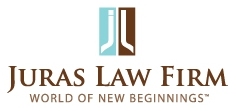How to qualify for treaty trader (E-1) visa?
Two Mexican citizens established a US company to import fresh produce from Mexico and sell it in the U.S. and Canada. Each member held 50% interest in the US company. Each member invested “substantial” amount of capital and put it “at risk”. The company rented office space and and warehouse, obtained a license for the US Department of Agriculture, a Blue book rating, registered trademark, hired customs broker and incurred marketing and warehouse expenses. The company created job opportunities for US workers – hired a full time sales representative and started interviewing for other positions. During its first season, the company generated very healthy profit and took steps to increase its marketing efforts to increase sales and visibility.
We established that the trade is already in existence, it is “substantial” and principally (more than 50% of total volume of international trade) between the US and Mexico.
Please note that this article does not constitute a legal advice. We simplified the law to outline one treaty trader (E-1) visa case study. If you would like to obtain a treaty trader (E-1) visa, call our experienced E-1 visa attorney at 480-425-2009 or schedule your consultation online.
